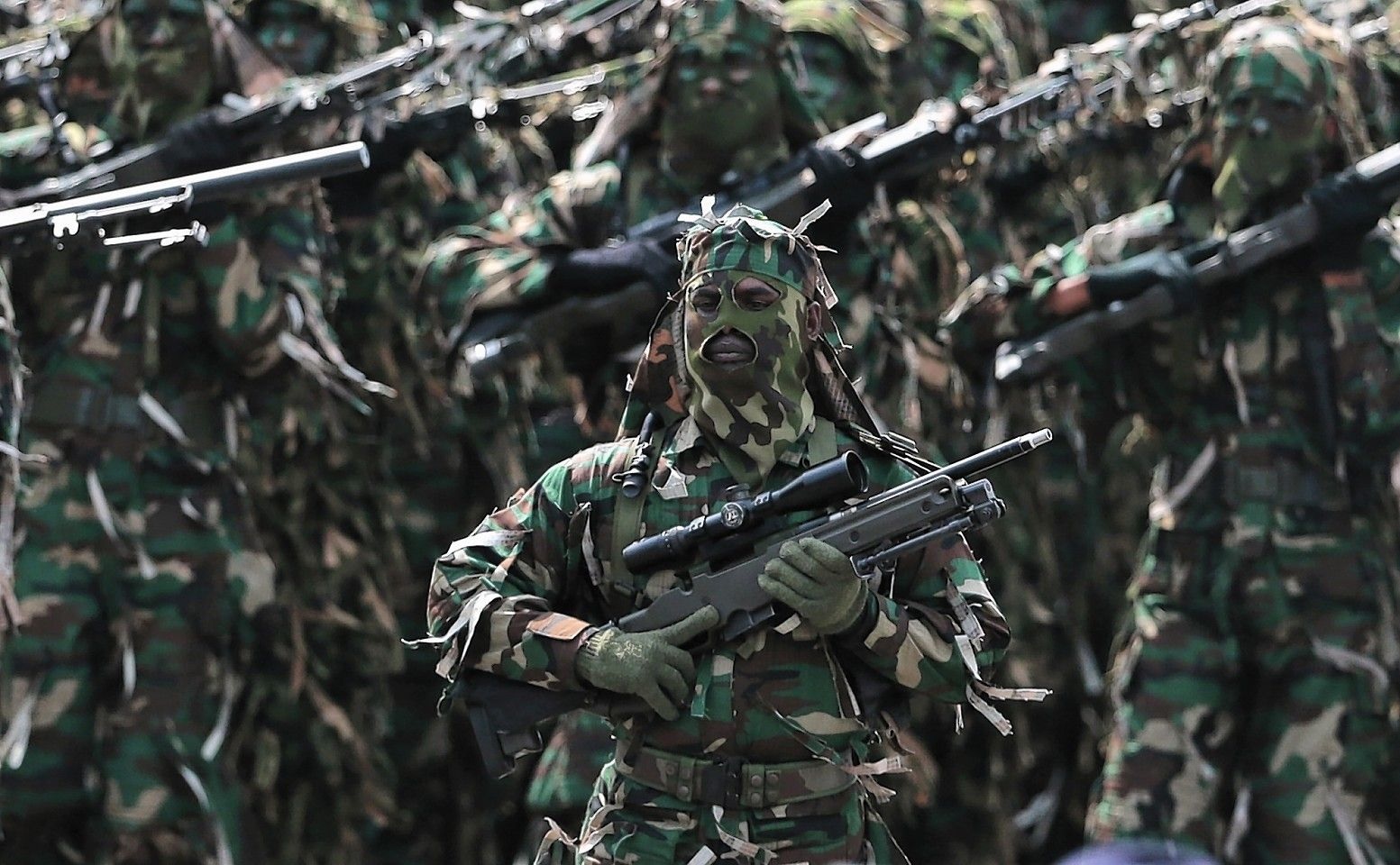Retaining Passports in the Sri Lanka Army: Rights and Justifications
The recent decision by the Sri Lanka Army to collect passports from all personnel below the rank of Major for “administrative purposes” has sparked considerable debate. This practice, which mandates that lower-ranked personnel surrender their passports while allowing higher-ranked officers to retain theirs, raises several concerns regarding individual rights, fairness, and its broader implications. While the army spokesperson justifies this as a measure to address delays in acquiring passports for official purposes, a closer examination reveals several potential issues surrounding this policy.

Comparison with Similar Practices Elsewhere
In some countries, military personnel are subject to restrictions on their movement, including the retention of their passports, especially in situations where unauthorized absences or desertion have been a concern. In nations like China and North Korea, military personnel are required to adhere to strict controls on travel, including the surrender of passports. Such policies are often presented as security measures or methods to prevent defection, especially in authoritarian regimes. On the other hand, democratic countries typically allow their military members to travel abroad but require official approval to ensure that there are no security or operational conflicts. In these nations, however, personnel are generally not required to surrender their passports outright.
Potential Violations of Individual Rights
The most pressing issue with the army’s decision to collect passports is the potential violation of personal freedom. The right to freedom of movement, as enshrined in international human rights frameworks, includes the ability to travel abroad without unnecessary restrictions. Holding a passport is generally considered a fundamental right, and preventing access to it could be seen as an infringement on an individual’s liberty. While the army claims that this policy is for administrative purposes, the reality is that it limits the ability of soldiers to travel independently, especially for personal reasons.
Additionally, the policy raises concerns about discrimination. By applying the rule only to personnel below the rank of Major, the army introduces a tiered system that could be perceived as unfair. Higher-ranked officers are exempt from this restriction, which could be interpreted as a sign of preferential treatment. This discrepancy between ranks could lead to feelings of inequality and dissatisfaction among lower-ranked personnel, as it undermines the notion of uniformity and equal treatment within the armed forces. If the measure is indeed aimed at addressing administrative delays, one might question why it is necessary to target only the lower ranks. The unequal application of the policy suggests that it may be less about efficiency and more about a lack of trust in certain personnel.
The Exemption for Higher Ranks: A Double Standard?
The decision to exempt higher-ranked officers from the requirement to hand over their passports further complicates the situation. While it may be argued that Majors and above are less likely to abscond or misuse their passports, this unequal treatment casts doubt on the true motivation behind the policy. If the goal is purely administrative, one would expect a more consistent approach across all ranks. The fact that senior officers are allowed to retain their passports implies that the policy may be targeting lower-ranked personnel more out of concerns about unauthorized absences rather than actual administrative necessity.
This double standard raises important questions about the army’s internal dynamics and its perception of rank and authority. It hints at a belief that lower-ranked soldiers may be more prone to desertion or may require tighter controls, while higher-ranked officers are presumed to have more integrity and stability. This assumption not only undermines the autonomy of junior personnel but also perpetuates a hierarchical system that favors senior officers.
Serious ethical and legal questions
The Sri Lanka Army’s practice of collecting passports from personnel below the rank of Major invites serious ethical and legal questions. While some countries have similar policies, especially in authoritarian regimes, the practice raises significant concerns in a democratic context. The restriction on the freedom of movement for lower-ranked personnel appears to violate basic individual rights, particularly when it is not uniformly applied across all ranks. Furthermore, the exemption of senior officers creates an inherent inequality within the military, reinforcing a system of preferential treatment. If the army’s intent is truly administrative, it would be prudent to adopt a more transparent and fair system, ensuring that the rights of all personnel, regardless of rank, are respected.







